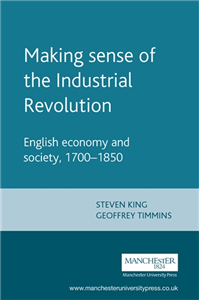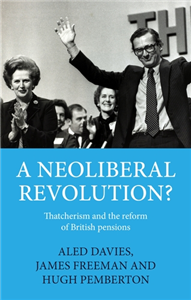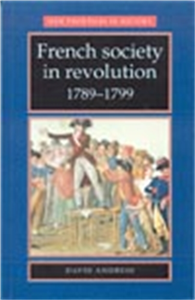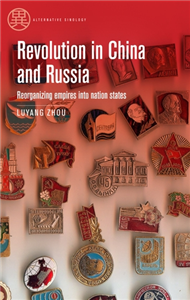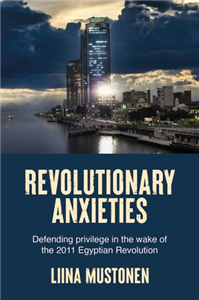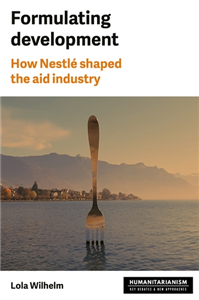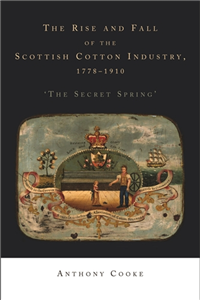Your Search Results
-
Chemical Industry Press Co. Ltd.
Chemical Industry Press( hereinafter called “CIP”) was established in 1953, and is one of the most distinguished state-owned publishers in China. As one of “top 100 publishers in China”, CIP has been seen as a well-known and trusted brand in China. For years, CIP is one of the most impressive Chinese publisher with powerful overseas libraries’ collection influence. Key subjects: Chemistry, Materials, Environment, Energy, Engineering, Machine, Automotive, Electric & Electrical, Architecture, Biology, Pharmacy, Medicine, Healthcare, Business & Management, Humanities, Lifestyle, Photography, Self-help, Baby & Parenting, Language learning, Literature&Arts,etc.
View Rights Portal
-
Promoted ContentHumanities & Social SciencesApril 2018
Disability in the Industrial Revolution
Physical impairment in British coalmining, 1780–1880
by David M. Turner, Daniel Blackie, Julie Anderson
An electronic version of this book is also available under a Creative Commons (CC-BY-NC-ND) license, thanks to the support of the Wellcome Trust. The Industrial Revolution produced injury, illness and disablement on a large scale and nowhere was this more visible than in coalmining. Disability in the Industrial Revolution sheds new light on the human cost of industrialisation by examining the lives and experiences of those disabled in an industry that was vital to Britain's economic growth. Although it is commonly assumed that industrialisation led to increasing marginalisation of people with impairments from the workforce, disabled mineworkers were expected to return to work wherever possible, and new medical services developed to assist in this endeavour. This book explores the working lives of disabled miners and analyses the medical, welfare and community responses to disablement in the coalfields. It shows how disability affected industrial relations and shaped the class identity of mineworkers. The book will appeal to students and academics interested in disability, occupational health and social history.
-
Promoted ContentHumanities & Social SciencesApril 2001
Making sense of the Industrial Revolution
English economy and society, 1700–1850
by Steve King, Geoff Timmins
Presents a new perspective on the Industrial Revolution providing far more than just an account of industrial change. Looks at the development of the economic structures and includes chapters on financing the revolution, technological change, markets and demand, transport and food. The final section looks at economic change and its impact and includes chapters on demography, the household, families, authority and regulation, and the built environment. Providing a complete summary of the various debates in the literature on this period, making a strong case for re-introducing a regional approach to the history of the age. ;
-
 Trusted Partner
Humanities & Social SciencesJune 2004
Trusted Partner
Humanities & Social SciencesJune 2004The political marketing revolution
Transforming the government of the UK
by Jennifer Lees-Marshment
This book shows how British politics is being transformed from a leadership-run system to one dictated by public needs and demands. No longer confined to party politics, organisations including the monarchy, the BBC, universities, local councils, charities and the Scottish Parliament are adopting the tools of market intelligence to understand their market needs and demands. The political marketing revolution raises many questions, such as whether the student or patient really does know best and can decide their own education and health care. The book calls for a debate about the movement of the British political system towards a market-orientation and a re-negotiation of the relationship between leaders and the market. Whilst recognising the need for political leaders to listen, this debate places some responsibilities on the political consumer, looking to create a new relationship that might work more effectively for both sides.
-
 Trusted Partner
Trusted Partner
-
 Trusted Partner
Trusted Partner
-
 Trusted Partner
Humanities & Social SciencesJune 2026
Trusted Partner
Humanities & Social SciencesJune 2026A neoliberal revolution?
Thatcherism and the reform of British pensions
by Aled Davies, James Freeman, Hugh Pemberton
This book examines the Thatcher government's attempt to revolutionise Britain's pensions system in the 1980s and create a nation of risk-taking savers with an individual stake in capitalism. Drawing upon recently-released archival records, it shows how the ideas motivating these reforms journeyed from the writings of neoliberal intellectuals into government and became the centrepiece of a plan to abolish significant parts of the UK's welfare state and replace these with privatised personal pensions. Revealing a government that veered between political caution and radicalism, the book explains why this revolution failed and charts the malign legacy left by the evolutionary changes that ministers salvaged from the wreckage of their reforms. The book contributes to understanding of policy change, Thatcherism, and international neoliberalism by showing how major reforms to social security could reflect neoliberal thought and yet profoundly disappoint their architects.
-
 Trusted Partner
Humanities & Social SciencesJuly 2024
Trusted Partner
Humanities & Social SciencesJuly 2024A neoliberal revolution?
Thatcherism and the reform of British pensions
by Hugh Pemberton, James Freeman, Aled Davies
This book examines the Thatcher government's attempt to revolutionise Britain's pensions system in the 1980s and create a nation of risk-taking savers with an individual stake in capitalism. Drawing upon recently-released archival records, it shows how the ideas motivating these reforms journeyed from the writings of neoliberal intellectuals into government and became the centrepiece of a plan to abolish significant parts of the UK's welfare state and replace these with privatised personal pensions. Revealing a government that veered between political caution and radicalism, the book explains why this revolution failed and charts the malign legacy left by the evolutionary changes that ministers salvaged from the wreckage of their reforms. The book contributes to understanding of policy change, Thatcherism, and international neoliberalism by showing how major reforms to social security could reflect neoliberal thought and yet profoundly disappoint their architects.
-
 Trusted Partner
Humanities & Social SciencesApril 1999
Trusted Partner
Humanities & Social SciencesApril 1999French society in revolution 1789–1799
by David Andress, Mark Greengrass
French society in revolution aims to retrieve the social history of the French Revolution from unjustified neglect. This study examines both the structural and cultural elements behind the breakdown of the eighteenth-century monarchic state and its aris. . . . ;
-
 Trusted Partner
Humanities & Social SciencesMarch 2019
Trusted Partner
Humanities & Social SciencesMarch 2019Waiting for the revolution
The British far left from 1956
by Evan Smith, Matthew Worley, Jacquelyn Arnold, Daniel Finn, Michael Fitzpatrick, Diarmaid Kelliher, Jack Saunders, J Daniel Taylor, Jodi Burkett, Gavin Brown, Daisy Payling, Christopher Massey, Sheryl-Bernadett Buckley, Daryl Leeworthy, Rory Scothorne, Ewan Gibbs, Lyndon White (Lawrence Parker)
Waiting for the revolution is a volume of essays examining the diverse currents of British left-wing politics from 1956 to the present day. The book is designed to complement the previous volume, Against the grain: The far left in Britain from 1956, bringing together young and established academics and writers to discuss the realignments and fissures that maintain leftist politics into the twenty-first century. The two books endeavour to historicise the British left, detailing but also seeking to understand the diverse currents that comprise 'the far left'. Their objective is less to intervene in ongoing issues relevant to the left and politics more generally, than to uncover and explore the traditions and issues that have preoccupied leftist groups, activists and struggles. To this end, the book will appeal to scholars and anyone interested in British politics.
-
 Trusted Partner
Humanities & Social SciencesJune 2025
Trusted Partner
Humanities & Social SciencesJune 2025Revolution in China and Russia
Reorganizing empires into nation states
by Luyang Zhou
Most scholars believe that China's nationality policy, like that of other socialist states, imitated the Soviet nationality model, a system which has been termed an "affirmative action empire." This book offers two contributions to the literature which run counter to this convention. First, it argues that the People's Republic of China (PRC) and the Soviet Union (USSR) were different; while the PRC was aimed to build an ideal-typical nation-state, the USSR was an open union of nation-states that was only temporarily confined to a physical territory. Second, while scholars who have noted this difference attribute it to contextual factors, such as ethnic structure, geopolitical status, and Russia's intervention into the Chinese Revolution, this book contends that context shaped the Sino-Soviet difference, yet it did not determine it. Rather, there was significant leeway between the implications of the contextual factors, and what the policy-designers ultimately established. This book probes who held agency, and how these individuals bridged this gap.
-
 Trusted Partner
Humanities & Social SciencesOctober 2020
Trusted Partner
Humanities & Social SciencesOctober 2020Feudalism, venality, and revolution
by Stephen Miller, William G. Naphy, Joseph Bergin
-
 Trusted Partner
Humanities & Social SciencesMarch 2026
Trusted Partner
Humanities & Social SciencesMarch 2026Revolutionary anxieties
Defending privilege in the wake of the 2011 Egyptian Revolution
by Liina Mustonen
Revolutionary anxieties sheds light on an unexplored dimension of the 2011 Egyptian revolution: the anxieties experienced by Cairo-based liberal elite, socialites, and cultural actors who opposed the rise of the new political actors, the Muslim Brotherhood. This book provides fresh insights into the failure of the Egyptian revolution by examining the perspectives of those who had a vested interest in maintaining the status-quo. It engages with post-colonial theory and examines the elite milieu in Cairo through the lenses of gender and race. Based on over two years of ethnographic research in various elite locations such as the Cairo Opera House, an Egyptian-European film festival, and an elite sporting club in Cairo, the book illustrates how members of Egyptian liberal upper class insisted on their privilege in a moment when the country's class hierarchies were challenged. By revealing the prevalence of counter-revolutionary sentiment among Cairo's liberal and affluent elite, the book tells an untold story of the Arab Spring.
-
 Trusted Partner
August 2020
Trusted Partner
August 2020Vernunft und Revolution
Hegel und die Entstehung der Gesellschaftstheorie
by Herbert Marcuse, Alfred Schmidt
Herbert Marcuses Vernunft und Revolution bietet eine durch ihre Klarheit und Werkkenntnis immer noch bestechende Einführung in das philosophische System Hegels und spürt zugleich dessen bahnbrechendem Einfluss auf die Entwicklung der Gesellschaftstheorie nach. Marcuse rekonstruiert das maßgeblich durch Hegel geprägte sozialphilosophische und sozialwissenschaftliche Denken des 19. und 20. Jahrhunderts und widerlegt dabei die immer wieder geäußerte These, Hegel sei ein Theoretiker der Restauration und ein Ideologe des Obrigkeitsstaats totalitärer Prägung gewesen. Für Marcuse ist er vielmehr ein Denker der Vernunft, des Fortschritts und der Freiheit. Ein Klassiker der Hegel-Literatur!
-
 Trusted Partner
April 1989
Trusted Partner
April 1989Die Russische Revolution. 1905–1921
by Manfred Hildermeier, Hans-Ulrich Wehler
Zu den Problemen, denen die vorliegende Darstellung besondere Aufmerksamkeit schenkt, gehören der wirtschaftliche und soziale Wandel des Zarenreichs im ausgehenden 19. Jahrhundert, die schwere Krise des alten Regimes 1905/07, der Zusammenhang von Krieg und Revolution, die Gründe für das Scheitern des einzigen demokratischen Regimes der russischen Geschichte sowie die Ursachen und inneren Folgen der Behauptung der Sowjetmacht im Bürgerkrieg.
-
 Trusted Partner
Humanities & Social SciencesSeptember 2025
Trusted Partner
Humanities & Social SciencesSeptember 2025Industrial memory in North East England
Negotiating northernness
by Victoria Allen
Industrial memory in North East England examines how the region's industrial myth and memory have been articulated in the renegotiation of northernness. The book offers a critical contextualisation of the concept of northernness and the English North, and an introduction to the concept of the PopCultural Portfolio, a mixed-methods approach to conjunctural analysis in cultural and memory studies. The book provides six richly illustrated case studies to demonstrate the practical application of cultural studies' expansive and inclusive understanding of texts, bringing together materials from North East football, folk, indie and exhibition culture to establish how the North East's industrial past continues to be remembered and functionalised as industrial memory. In turn, the conjunctural analysis demonstrates how industrial memory is articulated and mythologised as north(east)ernes in contemporary popular culture.
-
 Trusted Partner
Humanities & Social SciencesApril 2025
Trusted Partner
Humanities & Social SciencesApril 2025The Derby philosophers
Science and culture in British urban society, 1700–1850
by Paul A. Elliott
The Derby Philosophers focuses upon the activities of a group of Midland intellectuals that included the evolutionist and physician Erasmus Darwin, Rev. Thomas Gisborne the evangelical philosopher and poet, Robert Bage the novelist, Charles Sylvester the chemist and engineer, William George and his son Herbert Spencer, the internationally renowned evolutionist philosopher who coined the phrase 'survival of the fittest', and members of the Wedgwood and Strutt families. The book explores how, inspired by science and through educational activities, publications and institutions including the famous Derbyshire General Infirmary (1810) and Derby Arboretum (1840), the Derby philosophers strove to promote social, political and urban improvements with national and international consequences. Much more than a parochial history of one intellectual group or town, this book examines science, politics and culture during one of the most turbulent periods of British history.
-
 Trusted Partner
Humanities & Social SciencesJuly 2025
Trusted Partner
Humanities & Social SciencesJuly 2025Formulating development
How Nestlé shaped the aid industry
by Lola Wilhelm
In the 1970s, Nestlé became a lightning rod for criticism against the food industry's negative impacts on humans and their environment, especially in the Global South. But what has so far eluded historical scrutiny is that the picture was more nuanced. This book tells the exclusive story of how the Swiss food giant, and more broadly corporate capitalism, have shaped the aid industry since the late nineteenth century. It follows Nestlé's bid for a share of the humanitarian market brokered by the Red Cross in wartime Europe, of its clinical trials in Swiss and Senegalese maternities, and of its agricultural modernisation schemes in Mexico, India, and the Ivory Coast. Based on extensive research in the firm's own historical archives and the records of national and international aid agencies, the volume interrogates the legacies of this long history for international development today.
-
 Trusted Partner
July 2025
Trusted Partner
July 2025Containing decolonisation
British imperialism and the politics of race in late colonial Burma
by Matthew Bowser
This book examines British imperialism in late colonial Burma to study how imperialists attempted to protect their strategic and economic interests after decolonisation: they did so by supporting ethnonationalism. This process resembles the Cold War tactic of "containment," and the book makes a crucial contribution to the study of modern imperialism by demonstrating the continuity between "containment's" late- and "neo"-colonial manifestations. For Burma/Myanmar, it also explores the origin of the present-day military junta's racial regime: it emphasizes the protection of the ethnoreligious majority from ethnic minority insurgency. The Rohingya people are currently suffering a genocide because of this racial regime. As the country endures civil war against the junta, this book highlights how ethnonationalists in the late colonial period first promoted this racial regime to seize power and prevent revolution, a process supported by British imperialists for their own ends.
-
 Trusted Partner
Business, Economics & LawMarch 2010
Trusted Partner
Business, Economics & LawMarch 2010The rise and fall of the Scottish cotton industry, 1778–1914
'The secret spring'
by Anthony Cooke
This is the first full-length history of the Scottish cotton industry, from its beginnings in the late eighteenth century to its premature decline in the years leading up to the First World War. The book examines the industry chronologically and through themes such as precursors, technology, capital and employers, markets, labour and work, placed within their broader economic and scoial contexts. Its account of the cotton industry is set within important historiographical debates such as proto-industrialisation, the speed of industrial change, the diffusion of technology, the labour process, paternalism, workplace control, entrepreneurship and theories of industrial decline. Cotton was Scotland's premier industry during the Industrial Revolution and this book will be wlecomed by specialists, students and interested readers alike. ;
-
 Trusted Partner
Trusted Partner





